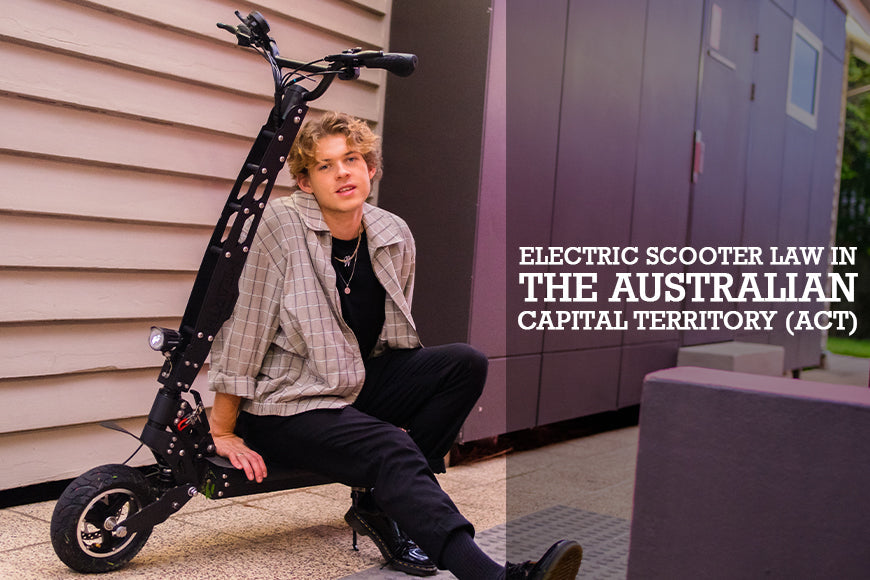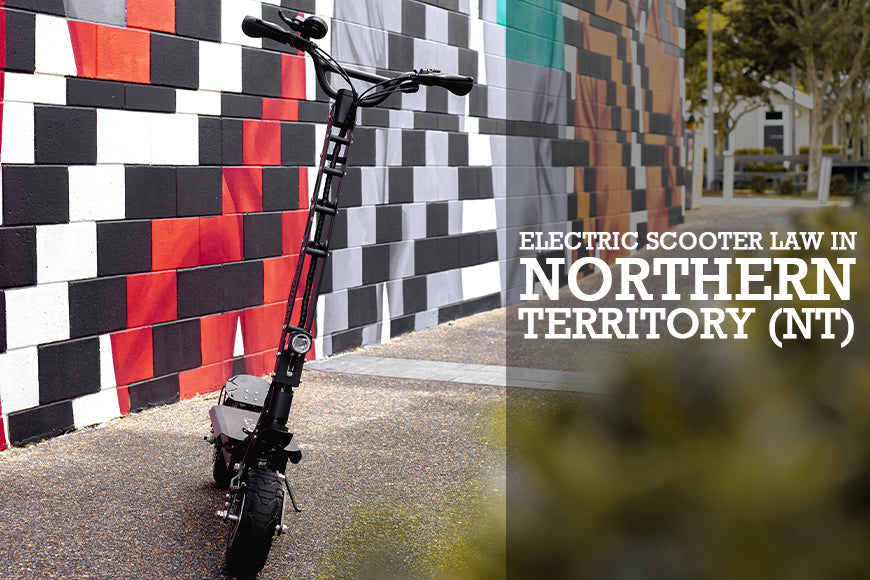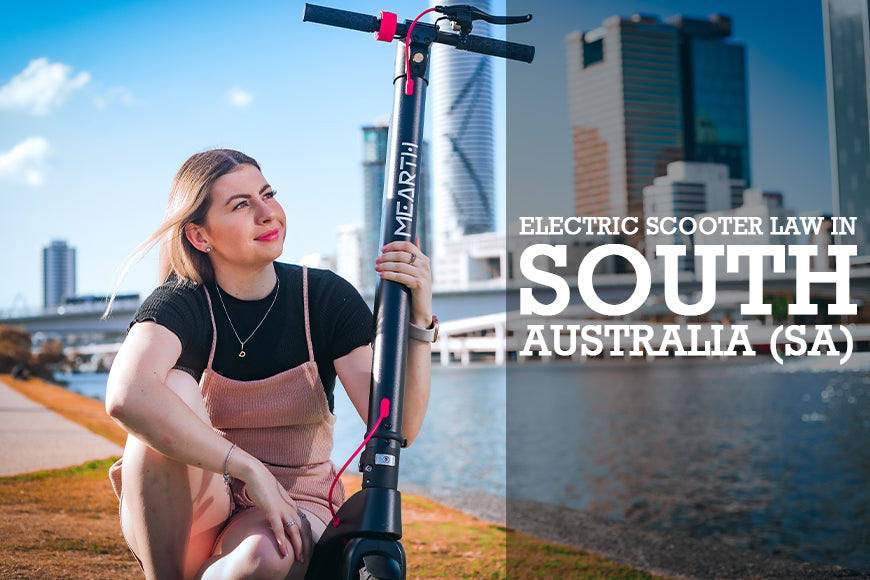
Electric scooter law in ACT legalises e-scooters in public paths as long as the e-scooters meet certain requirements. A personal mobility device (PMD), which includes e-scooters, must be:
- Designed for only one person
- Propelled by an electric motor
- Weighing a maximum of 60 kg
- With one or more wheels
- With a brake system
- Able to travel at a maximum speed of 25 km/h
- With dimensions of 1250mm (l) x 700mm (w) x 1350mm (h)
As most commercial electric scooters meet these requirements, riders in the ACT will have no problem using their e-scooter in public. However, riders must remember to follow electric scooter rules while riding in public for their safety. Riders who do not comply will be fined.
Based on the rules posted by the ACT Police, riders must comply with the following electric scooter regulations:
- It’s legal to use shared paths and footpaths, but riders must give way to pedestrians.
- Riders under 12 years of age must be supervised by an adult.
- Riders must not carry a passenger.
- Riders cannot travel on roads or on-road bicycle lanes, except on residential streets with no footpath.
- Riders cannot travel along the light rail corridor. Riders must also always obey pedestrian traffic lights when crossing.
- Riders must wear an approved helmet and use a warning device, such as a bell.
- The e-scooter or rider must have a light and reflector if riding at night or in inclement weather.
- Riders must not be under the influence and must not use their mobile phone while riding.
- Riders have a speed limit of 25 km/h on shared footpaths or cycle paths, 15 km/h on footpaths, and 10 km/h at crossings.
To learn more about the electric scooter laws in ACT, please check the Transport Canberra e-scooter page or read the full legislation at Section 244D to 244J in ACT Road Transport (Road Rules) Regulation 2017.
Aside from private electric scooters, ACT has also allowed approved shared electric scooter operators in some parts of the state. In particular, Beam Mobility and Neuron Mobility operate in Canberra as part of the city’s e-scooter trial. Riders can find devices in central Canberra and the Belconnen Tower Centre. Riders may also check the operator’s app to see which areas allow e-scooters.
Shared e-scooter riders are also advised to park used e-scooters well. Here are some reminders:
- Don’t leave the e-scooter in spaces that might obstruct people and other riders.
- Park it in a tidy manner to avoid inconvenience for the next user.
- Avoid leaving the e-scooter in a space where it may get damaged.
Shared and private electric scooter riders are asked to comply with these rules for their safety and others.
How to Ride an Electric Scooter Safely
To keep you safe and help you enjoy your trips, riders are also encouraged to follow these electric scooter road rules.
1. Wear a helmet
Electric scooter law in the ACT requires riders to wear approved helmets for their safety. Aside from this, riders may add extra protection by wearing elbow and knee pads, gloves, and eye protection. When riding at night, riders are required to also wear a reflective vest or have lights fitted on the e-scooter as per law.
2. Try not to go near the speed limit
Most people try not to go over the speed limit, but the best way to avoid exceeding the limit is to not go near the speed limit. If the speed limit is 15 km/h then only go up to 12 km/h. Try not to go around 13-15 km/h, as it’s easy to reach 15 km/h and go over it. Since most electric scooters have a maximum speed of 25 km/h as per law, you don’t have to worry about going over 25 km/h. However, try not to ride at high speeds for your safety.
3. Don’t carry a passenger
E-scooter law in the ACT prohibits riders from having a passenger. This means two people cannot ride a single electric scooter for safety purposes. Electric scooters are designed for only one passenger so overloading the e-scooter will make the e-scooter ineffective and can cause risks and dangers to the passengers. Riders caught with a passenger will be fined.
4. Don’t ride in inclement weather
Don’t ride an electric scooter when it’s raining or snowing. Paths can be slippery and visibility is low which can cause accidents. If you must go outside, ride another mode of transportation instead such as a car or public transportation.
Why Ride an Electric Scooter
1. An efficient way of commuting
Since e-scooters are slim, light, and compact, commuters can ride them on narrow paths, and bring them on public transportation. As a result, electric scooters can help you bypass traffic and arrive at your destination faster.
2. Greener way of travelling
Electric scooters remove fuel costs and have little to no maintenance costs. They are also cheaper than owning and driving a car. Meanwhile, shared e-scooters are sometimes more affordable than public transportation.
3. Have access to major areas of the city
A Lime survey in Washington, DC found that 44% of riders use e-scooters to access job opportunities, while 57% use shared e-scooters for work or school. Thanks to its convenience, you can have easy access anywhere in the city.
Electric Scooter Laws in Australia
Each state and territory in Australia has a different set of rules and regulations pertaining to the usage of e-scooters(including where e-scooters can legally be used and whether these products need to be registered with the relevant road traffic authority). Any user of this product must ensure that that they check and abide by their local by-laws and use responsibly. Ride with caution and always wear a helmet and protective gear when riding your Mearth e-scooter. Click here to learn more about E-scooter regulations in your state.
Shop for Mearth Electric Scooters Today
Explore our electric scooter models and find one that fits your needs! Shop Now!




Leave a comment
This site is protected by hCaptcha and the hCaptcha Privacy Policy and Terms of Service apply.